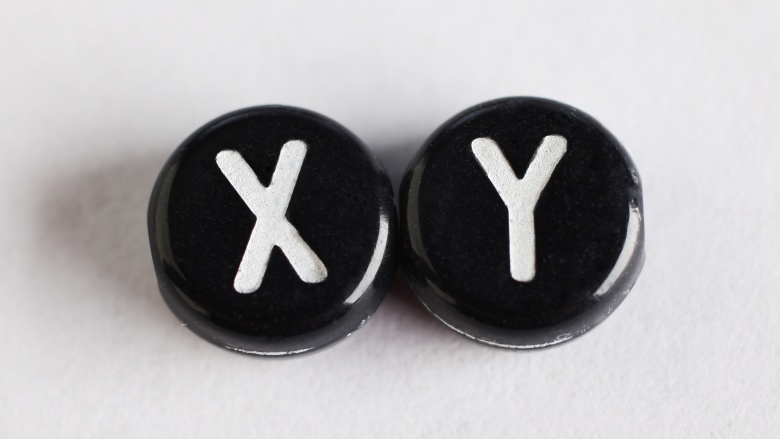The Real Reason Women Live Longer Than Men
For the first time since 1993, American life expectancy has decreased, according to a new report from the National Center for Health Statistics (NCHS), a division of the Centers for Disease Control and Prevention (CDC). This downward trend comes despite the development of life-saving medications like those used to treat HIV, which was the leading cause of death for people age 25 to 44 in 1993.
The NCHS study showed that Americans could expect to live for 78.8 years, down 0.1 from the year before. When you look at life expectancy along gender lines, you see a slowly widening chasm — the difference in life expectancy between women and men increased from 4.8 years in 2014 to 4.9 years in 2015. Women outliving men is not a new phenomenon. In fact, it might be the key to women staying alive, according to the current World's Oldest Person, Italian-native Emma Morano, who attributes her old age to ditching her husband back in 1938. While there is no scientific proof being single leads to long life, there are several scientific reasons why women tend to outlive their male counterparts. Here are a few.
History repeats itself
Scientists have known for a long time that women tend to live longer than men do. A review of birth and death records from 1800 to 1935, found that during those years, the death rate decreased among men and women. However, the study, published in the journal Proceedings of the National Academy of Sciences, found that beginning in 1880, the death rate decreased much faster for women than for men. Much like today, the leading cause of death for men during that period was cardiovascular disease. Heart disease and stroke accounted for more than 40 percent of the increase in male mortality rates between 1880 and 1919.
Built tough
The likelihood of a woman living longer than a man starts even before they take their first breathe. We typically think of pregnancy as a time where a mother protects her growing fetus to ensure its health and strength on the outside. While that's generally true, the pregnancy process can be as rough on the fetus as it is on the mom.
In utero, fetuses face many challenges, including infection and what is called spontaneous abortion — more commonly called miscarriage. According to the March of Dimes, about 10 to 15 percent of all pregnancies end in miscarriage. One common cause of miscarriage is stress. Research has shown that in cases of high stress, male fetuses are more likely to be miscarried than female fetuses. Following events like 9/11, earthquakes, and natural disasters, the ratio of births of baby boys to baby girls declined.
Chromosomal defects
If you remember seventh grade science, we get 23 chromosomes from our mom and 23 chromosomes from our dad, which make up 46. Forty-four of those chromosomes are autosomes—which is just a fancy word for chromosomes that are not sex chromosomes. The remaining pair of chromosomes are the sex chromosomes—called allosomes. Girls have two X-chromosomes and boys have one X and one Y chromosome. X-chromosomes are in every cell in the body and carry genetic traits. Previously, researchers thought the Y-chromosome was useless. However, researchers now believe that defects to the Y-chromosome can cut the lifespan of a man.
A group of Swedish scientists found that men with defective Y-chromosomes had a shorter lifespan. Using blood samples of more than 1,600 men, they found a fifth of their subjects didn't have Y-chromosomes in at least 10 percent of their blood cells. Older men suffer from age-related loss of Y-chromosomes, which is normal and generally harmless. However, some men may lose significant amounts of Y-chromosomes from their blood cells, which causes blood cells to die quicker. This also increases the risk of cancer and diabetes.
Girls do it better
Women live longer than men do because girls are smarter than boys. It might sound sexist, but it's a scientific fact. A 2015 study found female brains develop much faster than those of males. Throughout our lives, the brain changes to become more efficient, and researchers have found these changes happen earlier for girls than for boys.
One study that spanned more than 30 countries confirmed girls outperformed boys on intelligence tests. While being a smart girl isn't something to rub in your dumb brothers' nose, it is important to note that research has shown people with higher intelligence tend to live longer. The exact reason why intelligent people live longer is still unknown but it is believed that smarter people tend to do health smart things like wear seat belts, not smoke, and exercise.
My middle name is Danger
The many boys that do survive pregnancy and childbirth are also more likely to experience hazardous events in their lives than girls are. Countless studies show that men are more likely to engage in risky behavior than women are. In 2013, unintended injuries was the third leading cause of death for men in the United States; it's the sixth most common cause for women, according to the Centers for Disease Control and Prevention. Men are more likely to die in car crashes, less likely to wear a seat belt, and more likely to drive impaired, according to the Insurance Institute for Highway Safety.
Men don't just throw caution to the wind — they seek it out. A 2012 article published in Philosophical Transactions of the Royal Society B, argued that men are biologically programmed to be aggressive. While that aggression works masterfully in their quest to get women, it also more likely to get them killed.
It is also important to note, men are more likely to die from work-related injuries. This is due in large part to the fact that men are just more likely to have a riskier job. According to the Bureau of Labor Statistics in the Department of Labor, women accounted for 8 percent of all deadly workplace injuries in 2014. I doubt that is one gender gap women will be in a rush to fill.
Matters of the heart
While heart disease is the leading cause of death for men and women, women are likely to develop heart disease 10 years later than men in their age group are. This is because the hormone estrogen helps stave off heart disease. Estrogen helps strengthen the blood vessel walls. When menopause sets in — at age 51, on average — a woman's estrogen levels begins to go down. This decrease in estrogen causes the walls to weaken and clots to form. While hormone replacement therapy was once used to help reduce the risk of heart disease in women, it is now shown to increase the risk of stroke, heart attack, dementia, and breast cancer.
Head, shoulders, knees, and toes
Because women are risk averse, they are also more likely to take care of their bodies, unlike their male counterparts. According to the Agency for Healthcare Research Quality, men are 22 percent less likely to visit a doctor than women. The agency, which is a part of the Department of Health and Human Services, also found men were more likely to be hospitalized for congestive heart failure, long-term complications of diabetes, and pneumonia.
Bigger, not better
While it's easy to chalk the longevity disparity up to your mate's failure regularly visit a doctor, there are factors beyond his control — specifically, his size. Across many species, larger individuals tend to live shorter lives. Several studies have found that those who are taller don't live as long. A 2013 study found that large dogs were slightly more likely to die young than smaller dogs. While your husband might not be a dog — though the jury is still out on your ex-boyfriend — another study found changes in DNA linked to aging and lifespan happen as the body gets bigger.
Depression and suicide
Women tend to get depressed more often than men. It's surprising, then, that men tend to commit suicide more often than women do. According to the CDC, men represent almost 80 percent of all suicides in the United States. In recent years, suicide rates among white, middle aged men have increased. In an article published in the journal Men and Masculinities, a Colorado State University psychologist argued this surge in suicides among older white men might be due to men being less psychologically prepared to deal with the challenges of aging.
One reason why men might be more likely to commit suicide than women, despite women being more depressed, is women tend to have greater social connections. Studies show our social connections have a direct impact on our mental and physical health. A study published in the Annals of Internal Medicine found men with weaker social ties were more than twice as likely to commit suicide as men with strong social networks.









